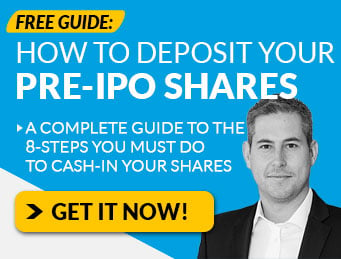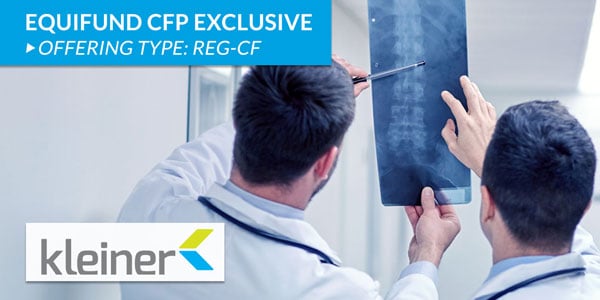Investors are often misled into believing they’re buying something “safe” that in reality, isn’t at all.
Nowhere is this more obvious than with the grossly misleading funding vehicle known as a Simple Agreement for Future Equity (or SAFE for short).
Here’s why…
Unlike more traditional investment vehicles that have pretty straightforward terms (like common stock, preferred stock, or convertible notes)…
A SAFE is what you’d call a “derivative” or “exotic” investment.
But to fully appreciate why this common investment vehicle is something we DO NOT offer on Equifund let’s take a step back and do a quick rundown as to what a SAFE is, and why it’s commonly used in the startup world.
Introduction to SAFEs
The SAFE was developed by Carolynn Levy, an attorney and partner at Y Combinator, and was first released in 2013.
Its purpose was to reduce – or entirely eliminate – a lot of the costly regulatory burdens and legal fees a cash-strapped startup would need to go through for traditional fundraising. And it does so in a rather novel way…
Instead of trying to assign a valuation to a very early-stage startup, the investor and founder make an agreement that goes something like this: “I’ll give you cash today for equity tomorrow.”
In a lot of ways, SAFE is kind of like a convertible note. At some future date, the cash investment will convert into equity.
But with one critical difference…
Normally, when you “lend” a company money, there is some expectation that the money will be paid back on a specific schedule, and with interest.
But a SAFE doesn’t have any of those features.
This means it’s not really a debt instrument. And because the investor doesn’t get voting rights or receive dividends, it’s not really an equity investment either.
As a result, in many ways, it’s kinda like buying an options contract on a startup…
You don’t actually own anything until certain conditions are met.
And this is where the problems begin when investing in SAFEs through crowdfunding platforms.
Because hidden inside of these grossly misnamed vehicles are all kinds of “gotchas” that create real problems for investors and founders.
Problem #1) Dilution & Valuation Caps
If you’ve seen the Facebook movie, “The Social Network,” you might remember how one of the original founders, Eduardo Saverin, gets royally screwed by Zuckerberg.
Saverin at one point owned 34.4% of Facebook…
But after the company raised new funding and issued new shares, Eduardo winds up only owning 0.3% of Facebook!
Without going too deep into the weeds, the “deal math” works out as follows…
There’s only 100% of the equity pie available, which are represented in the form of “shares.”
But what happens when new shares are issued out of thin air?
The new equity has to come from somewhere.
Usually, that “somewhere” is from the founders and other early investors.
To be clear, it is perfectly normal for shareholders to get diluted as more capital is raised in future rounds.
However, SAFEs make the dilution question trickier because of how they are priced.
Unlike a priced round where shares are sold as a specific price at a specific valuation (i.e. $1/share at a $10m valuation)…
A SAFE will “convert” to equity at a future price that is yet to be determined.
Usually, the SAFE note stipulates it will convert at a discount to the next priced round.
For example, you invest in a SAFE note with a 20% discount today, and sometime in the future the company decides to raise capital at a $10m valuation. This means your shares would convert at an $8m valuation, and the new investors come in at the $10m valuation.
Additionally, the SAFE note could also come with a Valuation Cap. This sets the highest price that can be used to set the conversion price.
For example, let’s say the same example company issues a SAFE note that also includes a $10m Valuation Cap… and then raises their next round at a $20m valuation.
Instead of converting at a 20% discount to the $20m, the SAFE note holder has the option to convert at a $10m valuation instead.
At the time of conversion, the investor can take advantage of either the discount or the valuation cap — whichever is more favorable.
This might sound like a great deal for investors who own the SAFE notes… but it can set up some awkward incentives for founders.
This brings us to…
Problem #2) Triggering Events
Remember, SAFEs aren’t equity and they’re not debt. They exist somewhere in between.
When a company has outstanding SAFE notes, they want to convert those investors at the highest valuation possible in order to minimize dilution.
But unlike a convertible note where you, the investor, have some level of protection…
Unless and until the SAFE “triggering events” are met – which is usually a future round of funding – you, the investor, don’t own jack squat.
- This means if the company you invested in never meets the “trigger event” requirements, you don’t get anything.
And even worse, if the company goes bankrupt, you don’t even have the chance of recouping your losses in court.
But even if the company DOES reach it’s triggering event, that doesn’t mean you’re in the clear.
Problem #3) Repurchase Rights
Imagine for a moment you invested in a hot startup on a crowdfunding platform. And one day, they announce they’re about to close a huge round of funding. Or maybe even make a full-on exit.
You’d probably feel pretty freaking excited knowing your highly speculative investment paid off…
But how would you feel the company you invested in could repurchase your shares at whatever price you bought them for…
And screw you out of 100% of your potential gains?
That’s exactly what repurchasing rights do.
And if you haven’t read the “fine print” on what you’re investing in…
A provision like this can essentially force crowdfunding investors to take all of the risk while getting none of the reward.
Final Thoughts
To be clear, I’m not suggesting that SAFEs are – in all cases – a poor investment vehicle for investors.
When you’re running a program like Y Combinator – or you’re a professional investor – it can make a ton of sense to make this sort of agreement.
However, many retail investors are unfamiliar with how this investment vehicle works and the potential risks that come with it.
If you’re investing in SAFEs via a crowdfunding platform, make sure you dig into the details and understand what you’re buying.
Yours for investing equality,
Jordan Gillissie – CEO
Equifund












